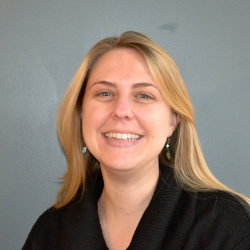May
30
2013

Written by Caroline McAndrews
Last week, Helen Kim and I hosted a webinar that reviewed the findings of Vision for Change: A New Wave of Social Justice Leadership. The report was based on in-depth interviews with social justice leaders under 40, and we were lucky to have one such leader, Carlos Saavedra, join us on the call to share his experiences.
Carlos was born in Peru and grew up in Boston, where a the age of 16 he became active in the immigrant rights movement fighting for equal access to higher education for undocumented youth and in 2005 became a co-founder of the Student Immigrant Movement of Massachusetts. He then became the national coordinator for the United We Dream Network, the first immigrant youth national organization. He led the organizing and campaign efforts that took the network from a loose coalition of 7 groups to 52 member-organizations organized by region in 30 states. After the intense 2009-2010 Dream Act campaign, Carlos was chosen as the Most Valuable Activist of 2010 by The Nation Magazine. Most recently Carlos was key in organizing the End Our Pain and Right to Dream Campaigns (2011-2012) that led to the victory of legal relief for 1.7 million undocumented youth.
As one of the leaders interviewed for the report, Carlos shared his reactions to the findings and elaborated on the challenge of working as a young movement leader, but also the incredible mentorship he has experienced, and his ability to create the space and time for reflection in recent years. Many leaders struggle to find that space, and the challenge of executive and other leadership positions is how to stay in such a demanding place and remain fresh and strategic. Carlos provided great ideas for how to do that.
Following Carlos’ thoughts, participants on the webinar asked questions about the role of older leaders in providing the supports needed by younger leaders. Perhaps not surprisingly, they often need the same supports as well, so how do we begin to provide more of that as a sector? In Vision for Change, the authors suggest supporting and encouraging distributive models of leadership that share tasks among multiple decision-makers as one way to sustain movement leaders and their organizations for the long-term.
There was also a discussion of coaching and the unique benefits it can provide. When resources are limited, coaching is often not available to most leaders. One of our participants suggested Coaching for Social Change, for low-cost services.
To hear more about the report and hear Carlos’ insights, you can watch and listen to a recording of the webinar on our YouTube station or visit our website to read the report.
